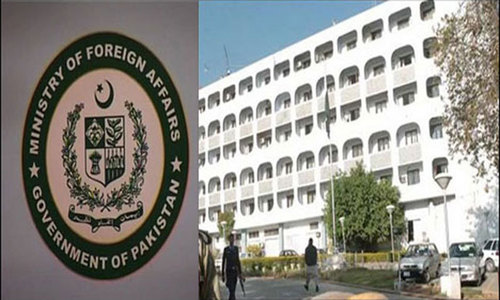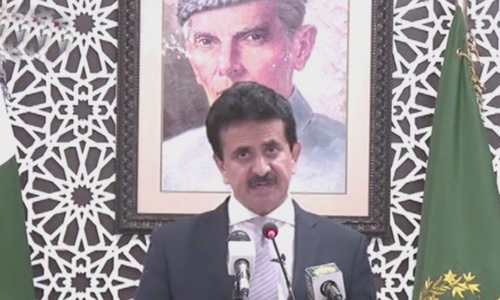Pakistan tells India to respect diplomatic norms

ISLAMABAD: Pakistan on Sunday said it had rejected nomination of Jayant Khobragade as India’s new charge d’affaires in Pakistan as he was too senior for the position at a time when the bilateral ties had been lowered.
In a statement, Foreign Office (FO) spokesman Zahid Hafeez Chaudhri said leaking misleading information and twisting facts was not only contrary to diplomatic norms but was also not helpful in the conduct of diplomatic relations. “The news in certain sections of Indian media, quoting sources in the Indian Ministry of External Affairs, regarding assignment visa for senior Indian diplomat Jayant Khobragade proposed as charge d’affaires at the Indian High Commission in Islamabad, is misleading,” said the FO spokesman.
Since August 5, 2019, following India’s illegal and unilateral actions in Indian illegally occupied Jammu and Kashmir (IIOJK), Pakistan took a number of steps, including the downgrading of diplomatic relations with India. The purpose of downgrading the relations was to register Pakistan’s strong protest and condemnation of India’s illegal, inhuman and unacceptable actions in IIOJK.
He said Pakistan believed that by proposing a senior diplomat, who had already served as ambassador in another position, India was trying to circumvent the effect of downgrading of diplomatic relations, which was obviously not in line with Pakistan’s decision.
However, keeping in view the diplomatic norms, he said, Pakistan had counselled India to nominate an officer with seniority commensurate with Pakistan’s decision of downgrading the diplomatic relations.
As for the veiled threats in Indian media that the issue of grant of assignment visa to Mr Khobragade will “further destabilise” India-Pakistan relations, Mr Chaudhri said it must be clear that the relations between India and Pakistan were inextricably linked to the resolution of the Jammu and Kashmir dispute in accordance with the relevant Security Council resolutions.
“A just and lasting solution of the Jammu and Kashmir dispute is critical for durable peace and stability in South Asia. Accordingly, India is once again reminded of its international obligations with regard to the Jammu and Kashmir dispute. India must listen to the voices of the Kashmiri people and the world community,” the spokesman concluded.
Published in Dawn, September 21st, 2020













































